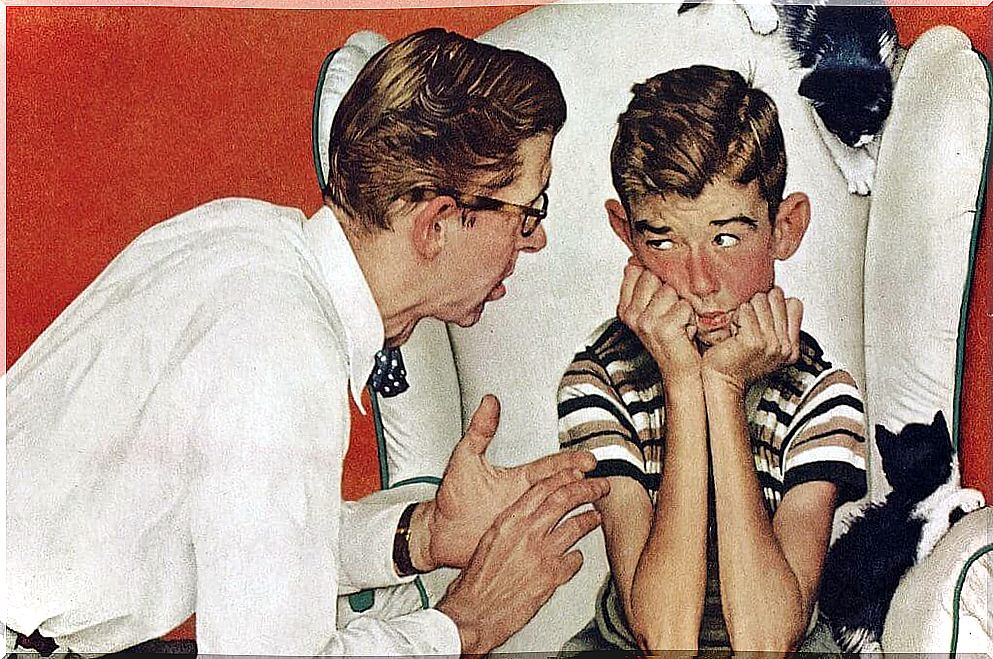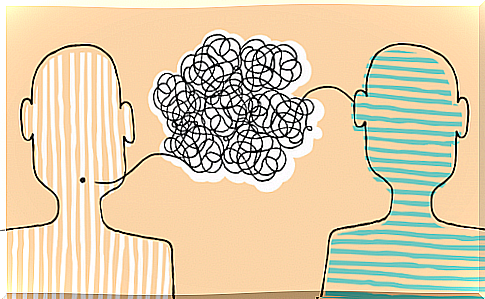8 Keys To Effective Communication

We are social beings by nature. Connecting with others gives us emotional benefits such as understanding, support, and improving self-esteem. Despite this, many people fail to connect with the people around them. This can be due to several causes, one of which is failure on the path to effective communication.
People who, on the contrary, have no problems establishing effective communication are those who have developed their social intelligence. Some authors like the American psychologist Daniel Goleman address in their research the importance of this type of ability. This is based on the ability to maintain relations of harmony and peace with others without renouncing assertiveness.
Skills like empathy and understanding are fundamental when making social connection. However, succeeding in instilling confidence in the other person, making them feel understood and safe with us is not always an easy task.
This is why there is a series of tools to help improve this type of emotional intelligence. These are steps to achieve effective communication, which can be learned and implemented without much effort. In any case, with their reading and their application, we will be able to understand a little better the world of social relations.
Some keys for effective communication
In any type of interaction, non-verbal communication must be taken into account. Most of the time, we don’t pay attention to it when it is often more important than the content of the message. The gestures, looks and posture of our body will be largely responsible for the image that the interlocutor will have of us.

In the communication process, synchrony plays an essential role. Daniel Goleman says this ability reads all non-verbal cues, whether it’s smiling or nodding at the right moment. People who fail to get into synchrony are those who, through their behavior, create a feeling of discomfort or strangeness in others. These people are said to be “dissemic”: they are characterized by not understanding the signals that end the conversation or make it change course.
These social deficits do not respond to any neurological cause but simply to a flaw in learning. Nowadays, there is a series of programs that take care of teaching synchrony to children and adults. For people who face this type of problem, achieving effective communication becomes much easier. By following a set of guidelines, we will be able to improve our social skills and deliver the message that truly interests us.
1. Paraphrase and ask questions
Asking questions and paraphrasing are really important parts of effective communication. Contrary to what one might think, doing this does not show a lack of desire but rather a sign of interest. The interlocutor feels listened to, which creates a climate of empathy and very beneficial understanding.
Paraphrasing allows us to organize the parts of the conversation that we do not understand well as we demonstrate that we are paying attention to what we are told. Of course, we are talking about a process that must be managed well; if we abuse it too much, it can turn against us because the other may think that we are laughing at him.
2. Give compliments
Compliments reinforce the other person’s speech. It is very helpful to use approval phrases like “what you say sounds great to me”, “I agree with you” or “I’m glad to be with you”. It is also possible to use less direct sentences like “super!” or”.
3. Show empathy
Empathy is a quality that not everyone has. Being able to put yourself in the other’s shoes noticeably improves fluency in communication. You establish a positive rapport, an emotional sympathy that creates a climate of understanding and trust.
In addition, it gives a positive image of ourselves, that of a close and attentive person. It creates a coordination between the interlocutors which allows an effective communication between them.

4. Adapt to the context
A good style of communication can completely fail if we don’t take the context into account. The environment, the number of people around us or the subject we are going to deal with are very significant. It is advisable not to dispute what our interlocutor tells us, or to repeat it in front of others. However, we can give him compliments.
The noises, the place and the moment must be as adequate as possible. If we see that our conversation will not bear much fruit or that we think about it too much, it is better to put it off until another time.
5. Respect the opinion of the other
Respecting the opinions of others is fundamental. Insulting, despising or underestimating the beliefs of the other shows a great lack of maturity. Throughout our life, we will meet people who have a different way of thinking from ours; we will be able to discuss it with them, debate it, but also, very often, accept that several points of view can exist on the same theme.
It is possible, after listening to another person’s ideas and arguments, that we keep the same original idea. It is also likely that our prejudices will be challenged. Having an open mind to change is not only beneficial to interpersonal communication but also to our own knowledge.
6. Look our interlocutor in the eye
It is recommended that you make eye contact with the other person. It must be done in a natural way because the look is an extremely expressive element. Thanks to him, our interlocutor will feel listened to and the connection between us will improve.
The opposite situation occurs when we are not able to look the other in the eye: this generates insecurity. Looking away while someone is talking to us expresses a lack of interest and looking down suggests that we may be lying.
7. Do not invade your personal space
When we try to forge links with our interlocutor or to strengthen our position, we may end up invading, unwittingly, his personal space. Getting too close, contrary to what we sometimes think, rarely leads to closeness: on the contrary, many people feel uncomfortable and feel the need to move away.
It is good that the distance that we maintain with our interlocutor adapts to two circumstances: the degree of trust that we have with the other person and the character of the subject. We have to find the balance between too close and too far. We’re not trying to be suspicious or suspicious either, are we?

8. Respect each other’s speaking time
Not respecting the moment when a person speaks, in addition to being a sign of rudeness, interrupts effective communication between the interlocutors. It is necessary to wait until the other has finished speaking before speaking. In the context of oral communication, all those involved must respect their turn to speak.
The steps to achieve effective communication are, in general, fairly straightforward. At first they may seem a bit forced to you, but as you practice them you will start to feel the effects. Communicating is an innate process, and improving our abilities will help us cope with the world.
Main picture: Norman Rockwell









